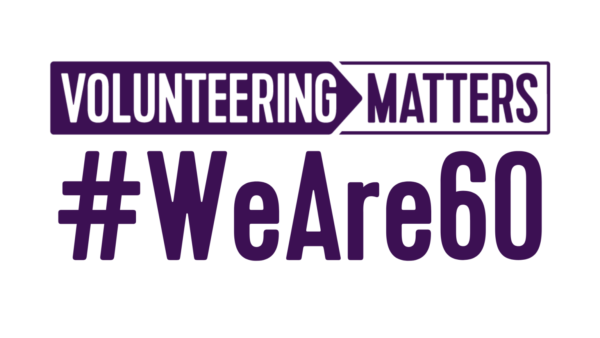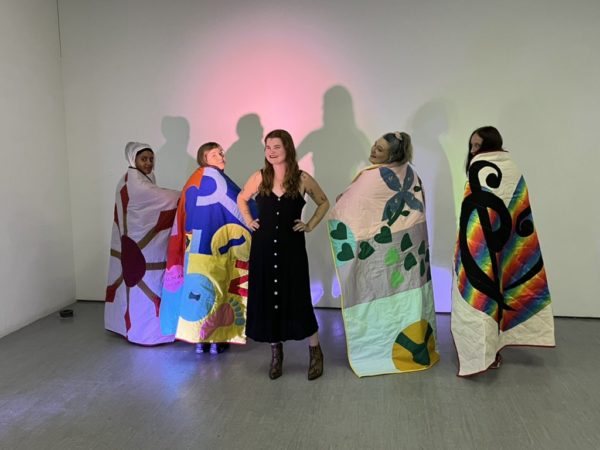Shifting power to communities and volunteers: Let’s get started
This summer we’ve witnessed first-hand the incredible efforts of people in communities, volunteering their time to support others in need during this pandemic – this included emergence of mutual aid groups, neighbours supporting one another, more formalised roles like NHS Responders and volunteers through charities with reach and expertise like Volunteering Matters.
The recent report on levelling up communities by Danny Kruger MP, commissioned by the Prime Minister, recognises that people want to help others in their local area and shape the space and structures around them. This creates an important opportunity to discuss what all of this means for the future of volunteering and communities, and more specifically the role of government, local authorities and charities in enabling volunteering to thrive.
We believe the gift of time, local people supporting each other, and the power of volunteering is at the heart of the answer to many of the UK’s social problems.
Volunteers play a vital role in society. From simple neighbourly tasks like doing the shopping for an elderly neighbour to more structured modes of volunteering such as the Samaritans helpline volunteers, people give their time in different ways. It’s all needed and it’s important that we don’t make the case for one over the other.
Charities and communities have been AMAZING in this pandemic, but we’ve seen how fragile the infrastructure is for volunteers to support in times like this. Government is reflecting on its own role in galvanising communities and supporting volunteering. The Kruger report recognises some of the failings of the past, and the need to invest in infrastructure for volunteers and volunteering to thrive. We welcome that recognition.
But it’s not just successive governments and local authorities that have work to do here. Many charities often see their volunteers as an extension of their work, rather than seeing them as facilitators to help communities tackle social problems with their guidance.
I speak regularly to Volunteer Managers of charities who are continually struggling to get ‘cut through’ in their own organisation in the importance of volunteers to their cause. At one point over half of the membership of NNVIA (National Network of Volunteering Involving Organisations) was on Furlough Leave, as other parts of services were protected. For some, volunteers are still seen as an add on to support their work, rather than seeing volunteers as the lifeblood of charities. For those that do see volunteers as the lifeblood, we need to reform our thinking.
Kruger asks some big questions, and we need to ask ourselves some of these through our own lens. What role should Third Sector organisations play in supporting social policy with community-led change at its heart? Can we bring under-represented or under-served groups to the table at local and regional levels to shape system change? Are we as organisations willing to give power and creative license to individuals to help further a cause, solve a problem or challenge systems?
We are going through that review right now at Volunteering Matters. In addition to our more structured programmes, we are a facilitator, a convener, with the ability to bring people together – volunteers, funders, partners, staff and the people they serve – to make change at local and national levels.
Before the pandemic, we were already shifting from a service provider to an organisation that works with people, as well one that provides support to them. We know that is how the work our volunteers do can have the most impact. It means that we still support those most in need while making deeper connections at a local and regional level. Over the next few weeks, we’ll be launching our new strategy, our manifesto for change, which is centred around just this. In reality, we’ve been operating that way in pockets for a few years now, and the pandemic has given us the opportunity to show the results that happen when you shift power to volunteers and facilitate change, rather than direct it.
This is critical, because, as the Kruger report recognises, people want meaningful opportunities to shape the places where they live. Volunteers and charities can play a vital role in making that happen. It’s at the heart of what we do and why we exist – not only supporting those in need but using our unique position to include them in the process of change as much as possible. We need to think deeply about how we can accelerate this and work more closely with local communities. Providing support and training and linking our volunteers with community initiatives, local providers or policy makers is a start. Listening to and working with people rather than on their behalf is central to this.
I’ve seen where this shift in mindset can make real and tangible difference for communities, and the benefits this has for all the parties involved as this recent report from Renaisi shows from our work in Suffolk.
Our youth social action volunteers are now working directly with commissioners, local authority leaders and schools to push reform and system change for young people at risk, including playing a role on advisory boards that shape safeguarding policy in the area.
We’re at the start of this journey, encouraging our volunteers and staff to build long term relationships with local organisations, services providers and decision makers, thus shaping change in the communities where we are based.
The Kruger report is ambitious and focuses on communities rather than civil society, or the role of charities and voluntary organisation. It’s on us to embrace the conversation, and be proactive about our role. Let’s not default to type here, commenting on the review and awaiting government’s next move. Let’s start the process ourselves, and use it as an opportunity to re-evaluate our role and build in opportunities for volunteers and communities to shape social change, tackling the causes and social problems we care about.
We intend to reach out proactively to DCMS, the Office for Civil Society and Kruger himself to help bring some of the recommendations into reality, with meaningful community participation at its heart.
But we also shouldn’t wait to be invited. Let’s get started on this vital work, showcase what’s already working, build on it and make the changes happen ourselves.
Paul Reddish
CEO, Volunteering Matters


